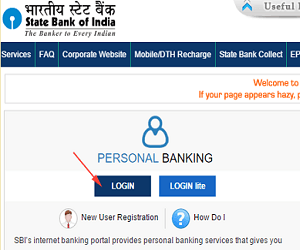If you are a student, you may want to consider using a student line. You can do this to help you build up your credit. Then, once you have graduated, you can upgrade your credit card to a more adult account with different rewards, spending limits, and responsibilities that a traditional account doesn’t store.
Contents
Lower limits
Student cards have lower limits compared to other types of cards. However, they do provide some benefits that aren’t available on other cards. These include cash back and travel insurance which are great for use if you travel for work and need lots of cash back.
Some banks may even upgrade your card after graduation. The best student cards offer no foreign transaction fees. You can also get a free Amazon Prime Student membership. The higher your income, the higher your limit.
Another detail is what is known as your DTI money ratio. This is calculated by a simple formula: dividing your monthly debt payments by your GMI or gross monthly income. It is a good indicator of your capacity to take on more debt.
A good score can qualify you for a higher limit. In order to obtain a higher line, you will need to have a responsible use record, such as paying your bills on time. Using your card in a responsible manner can lead to a favorable report within six to twelve months. Having a good score will also help you get the most out of a card.
A card can be an important tool for your financial future. In case you run into an unexpected emergency, you can count on your card to help you out. But, keep in mind that it’s important to remember to keep your balance low in order to maximize its utility. A good rule of thumb is to aim to possibly pay off your statement balance every month.
The CARD ACT of 2009, which you can read about here, has affected the way limits are assessed. The new laws require that the issuers of most accounts must notify their customers of their intention to increase or decrease their credit lines at least 45 days in advance.

Rewards programs
If you’re interested in earning cash back on your purchases, a student account can help. Some cards offer ongoing rewards, while others provide a one-time welcome bonus. You can use these rewards to pay for travel, statement credits, or merchandise. It can also be useful to pad your savings or help you with dorm expenses.
Some cards, such as the Capital One Quicksilver Student Cash Rewards, are designed specifically for students. It offers generous cash back rate, a convenient rewards program, and a price protection policy. If you spend at least $100 on your card in the first three months, you’ll receive $50 in cash.
In addition, you’ll get trip cancellation/interruption insurance and rental car coverage. The Bank of America Travel Rewards for Students offers a 0% introductory annual percentage rate for the first 18 billing cycles. You’ll also earn 25,000 online bonus points, which can be used for travel expenses. The card comes with no annual fee.
The Capital One SavorOne Student Cash Rewards is another great student account that is designed with the needs of college students in mind. It offers 3% cash back on dining and entertainment and a zero foreign transaction fee. The card also comes with purchase protection and an extended warranty. You can also enjoy 24/7 roadside assistance.
It has a low annual fee of $0 and includes travel accident insurance and rental car coverage. Another great account for students is the Discover it Student Chrome. It offers 2% cash back at gas stations and 1% cash back on all other purchases. It also offers a 5% first-year rewards match.

Ability to build a positive credit history
One of the best things you can do for your credit is start building a positive credit history early. Having a great credit history will help you get a better apartment, car loan, or home loan later in life. You can start by getting a student account.
These cards often come with low credit limits and easy to manage requirements. However, they don’t offer the same benefits as a traditional account. You should use these cards wisely. Keep your spending in check and only make purchases that you can easily pay for right away.
One of the easiest ways to build a good credit score is to make timely payments. According to https://www.forbes.com/advisor/credit-score/how-to-build-credit-fast/, missing a payment can be worse than defaulting on a loan. If you miss a few, it can stay on your report for years.
There are several benefits of getting an account, though. Getting an account can increase your credit limit, which in turn helps you build credit. It can also help you make on time monthly payments and avoid interest charges. It’s a good idea to look for a no annual fee card to save money.
If you’re in college, you’re likely not making much money. You may want to get a co-signer to help you build your credit. Your parent or guardian can add you as an authorized user on their account.
The most important part of building a good credit score is to know your limits. An account that offers low limits means you’re not tempted to go over your budget. It’s also a good idea to look for a card that reports to all three major credit bureaus.

Also read: Should You Pay Off Student Loan Debt or Save For a Home?
HigherAPRs
Student accounts can be a good option, especially if you are looking for a card with a low APR. However, there are a few important things you need to know before applying.
First, you need to understand how APRs work. Your interest rate will be determined by your credit score and other factors.
If you have a higher credit score, you are more likely to get a lower APR. Alternatively, you may end up paying a higher APR if you have a lower credit score. The key to getting a lower APR is to show that you are diligent with your payments. Additionally, you need to keep in mind that your credit utilization ratio makes up a significant portion of your credit score.
A good ratio is less than 30%. You should avoid taking out cash advances and balance transfers. These charges usually come with a cash advance fee. Also, you need to consider the length of your payoff period. A variable interest rate means that you will need to pay a longer period of time before you can pay off your debt.
Another factor to consider is the rewards you receive with your account. If you have a good rewards program, you will be more likely to use your card responsibly. In addition, rewards cards tend to have higher APRs than other types of cards.
You can also request your bank to reevaluate your rates. If you have been late on a payment, your bank might not offer the same APR you had before. The best way to ensure you are paying off your balance in full is to pay off your statement every month. You can do this by autopay.
Can you upgrade your student credit card after you graduate
The best way to maintain a good credit score is to pay off your credit card balance every month. This is also a great way to make sure you avoid overspending. Keeping a student credit card open after you graduate can be a good way to keep your financial life on track.
Once you have graduated, it’s important to know how to upgrade your student credit card. Your card provider may offer an upgrade, or you can request an increase which is something you may not want to do if you’re already strapped.
Whether you decide to keep your card or switch to a non-student version, consider the features, rewards, and benefits you’re looking for. Then, shop around to compare options from various providers.
Some banks automatically increase your card’s credit limit after you’ve shown responsible use. Other cards, such as the Capital One Quicksilver, allow you to continue using your card after graduation. If you’re interested in keeping your card after you graduate, you should notify the issuer as soon as possible.
This is essential because you may not know what the issuer’s policy is. Some card issuers do not publicly advertise their post-graduation policies. If you’re in a good financial situation, you’re more likely to qualify for an upgrade.




